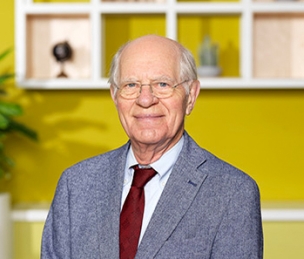Displaying 1 - 13 of 13
-
Levelt, W. J. M. (2018). Is language natural to man? Some historical considerations. Current Opinion in Behavioral Sciences, 21, 127-131. doi:10.1016/j.cobeha.2018.04.003.
Abstract
Since the Enlightenment period, natural theories of speech and language evolution have florished in the language sciences. Four ever returning core issues are highlighted in this paper: Firstly, Is language natural to man or just an invention? Secondly, Is language a specific human ability (a ‘language instinct’) or does it arise from general cognitive capacities we share with other animals? Thirdly, Has the evolution of language been a gradual process or did it rather suddenly arise, due to some ‘evolutionary twist’? Lastly, Is the child's language acquisition an appropriate model for language evolution? -
Levelt, W. J. M. (1991). Die konnektionistische Mode. Sprache und Kognition, 10(2), 61-72.
-
Levelt, W. J. M. (1991). Lexical access in speech production: Stages versus cascading. In H. Peters, W. Hulstijn, & C. Starkweather (
Eds. ), Speech motor control and stuttering (pp. 3-10). Amsterdam: Excerpta Medica. -
Levelt, W. J. M., Schriefers, H., Vorberg, D., Meyer, A. S., Pechmann, T., & Havinga, J. (1991). Normal and deviant lexical processing: Reply to Dell and O'Seaghdha. Psychological Review, 98(4), 615-618. doi:10.1037/0033-295X.98.4.615.
Abstract
In their comment, Dell and O'Seaghdha (1991) adduced any effect on phonological probes for semantic alternatives to the activation of these probes in the lexical network. We argue that that interpretation is false and, in addition, that the model still cannot account for our data. Furthermore, and different from Dell and O'seaghda, we adduce semantic rebound to the lemma level, where it is so substantial that it should have shown up in our data. Finally, we question the function of feedback in a lexical network (other than eliciting speech errors) and discuss Dell's (1988) notion of a unified production-comprehension system. -
Levelt, W. J. M., Schriefer, H., Vorberg, D., Meyer, A. S., Pechmann, T., & Havinga, J. (1991). The time course of lexical access in speech production: A study of picture naming. Psychological Review, 98(1), 122-142. doi:10.1037/0033-295X.98.1.122.
-
Levelt, W. J. M. (1966). Generatieve grammatica en psycholinguïstiek I: Inleiding in de generatieve grammatica. Nederlands Tijdschrift voor de Psychologie en haar Grensgebieden, 21, 317-337.
-
Levelt, W. J. M. (1966). Generatieve grammatica en psycholinguïstiek II. Psycholinguïstisch onderzoek. Nederlands Tijdschrift voor de Psychologie en haar Grensgebieden, 21, 367-400.
-
Levelt, W. J. M., & Plomp, R. (1966). Les dimensions dans la perception des intervalles musicaux. Sciences de l'art, 3, 172-182.
-
Levelt, W. J. M. (1966). The alternation process in binocular rivalry. British Journal of Psychology, 57(3/4), 225-238.
-
Levelt, W. J. M. (1966). Some demonstrations of the complementary functioning of the eyes. Perception & Psychophysics, 1, 39-40.
-
Levelt, W. J. M. (1966). The perceptual conflict in binocular rivalry. In M. A. Bouman (
Ed. ), Studies in perception: Dedicated to M.A. Bouman (pp. 47-60). Soesterberg: Institute for Perception RVO-TNO. -
Levelt, W. J. M., Van de Geer, J. P., & Plomp, R. (1966). Triadic comparisons of musical intervals. British Journal of Mathematical & Statistical Psychology, 19(2), 163-179.
-
Plomp, R., & Levelt, W. J. M. (1966). Perception of tonal consonance. In M. A. Bouman (
Ed. ), Studies in Perception - dedicated to M.A. Bouman (pp. 105-118). Soesterberg: Institute for Perception RVO-TNO.

Share this page